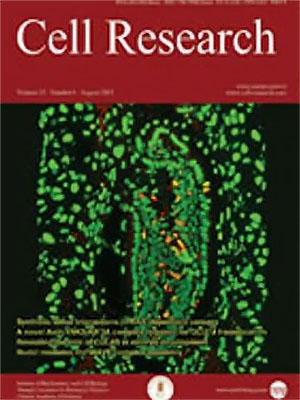
Volume 15, No 5, May 2005
ISSN: 1001-0602
EISSN: 1748-7838 2018
impact factor 17.848*
(Clarivate Analytics, 2019)
Volume 15 Issue 5, May 2005: 387-394
ORIGINAL ARTICLES
Moderate hypothermia prevents neural cell apoptosis following spinal cord ischemia in rabbits
Lei Ming WANG1,3,*, Ye YAN2,*, Liang Jian ZOU1, Nai He JING2, **, Zhi Yun XU1, **
1Department of Cardiovascular Surgery,Changhai Hospital, Shanghai 200433, China
2Laboratory of Molecular Cell Biology, Laboratory of Stem Cell Biology, Institute of Biochemistry and Cell Biology, Shanghai Institutes for Biological Sciences, Chinese Academy of Sciences, Shanghai 200031, China
3Department of Cardiovascular Surgery, The 85th Hospital, Shanghai 200052, China
Correspondence: Nai He JING Zhi Yun XU(njing@sibs.ac.cn zhiyunxu@smmu.edu.cn)
Paraplegia is a disastrous complication after operations of descending and thoracoabdominal aortic aneurysm. Regional hypothermia protects against spinal cord ischemia although the protective mechanism is not well know. The objective of this study is to examine whether hypothermia protects the spinal cord by preventing apoptosis of nerve cell and also investigate a possible mechanism involved in hypothermia neuroprotection. Cell apoptosis with necrosis was evident in the spinal cord 24 h after 30 min of ischemia. Moderate hypothermia decreased the incidence of apoptotic nerve cells. Both cell apoptosis and necrosis were attenuated by hypothermia. p53 expression increased and bcl-2 expression declined after ischemia, while hypothermia mitigated these changes. This study suggests that apoptosis contributes to cell death after spinal cord ischemia, and that moderate hypothermia can prevent nerve cell apoptosis by a mechanism associated with bcl-2 and p53 genes.
FULL TEXT | PDF
Browse 2078


